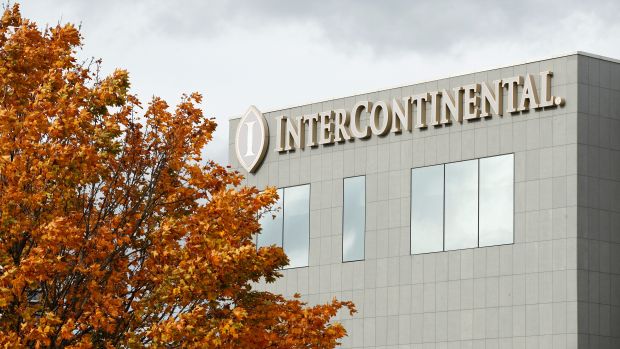Intercontinental’s CEO says remote work will help the hotel industry
As more companies switch to remote work as a result of the pandemic, InterContinental Hotels Group believes the shift could be great for business travel’s recovery.
With the Covid-19 essentially grinding leisure and business travel to a halt since March, the hotel chain said its global revenues per available room, an industry metric known as RevPAR, fell 52% in 2020. It will take years for group travel, such as for conventions and short business stays to return to 2019 levels, according to the company, which is in line with industry estimates from STR, a hospitality data firm.
However, remote work could also cause a shift in how some employees will attend in-person meetings, which could benefit hotels and the travel industry. As many large companies reduce their office space, adopt more flexible remote work policies, and switch more meetings to video technology platforms like Zoom, hotels could benefit, said Keith Barr, Intercontinental’s chief executive officer.
Load Error
“Instead of driving to the office five days a week, (their employees) may have to fly in once a month,” he said in an earnings call with analysts yesterday. “Additionally, people are talking about having small offices and less meeting space as well. And so they’re going to have to use hotels as gathering places to do things in the past with them in their offices.”
“I think the death of business travel has been exaggerated by a number of pundits out there,” he added.
Travel experts are not optimistic
While Barr is optimistic, industry analysts are more cautious. Business travel is “almost back to normal” in Asian-Pacific countries where restrictions were especially strict at the beginning of the pandemic, but that is due to domestic, internal demand, according to Jan Freitag, a hotel industry analyst at STR. Quarantine policies in many countries have effectively killed the quick business trip where a person attends a meeting, stays two nights, and flies out.
“Demand is going to continue to rebound very slowly until we have vaccinations rolled out at a much higher number and more importantly for business travel, we have a way to track that people have gotten the vaccine,” Freitag said. “We don’t have either today.”
There are several other challenges to business travel’s recovery. The first is the amount of planning involved in conventions and conferences for big groups, which are often planned and secured two years or more in advance. Freitag said hotels and meeting venues will also need to figure out how to handle people who don’t want to get vaccinated but still want to attend events. And finally, there’s the sheer cost of business travel. “We have all found in the last year we have gotten very productive on these online meeting venues,” he said. Digital and virtual industry events have allowed people to learn and network without the additional travel costs, even though many of them are still missing the social aspect that allows serendipitous interactions in the hallway, at dinners, or at a cocktail events.
“The question will be ‘Why are you going?’,” Freitag said. “You will have to justify it to your CFO because every company has saved a lot of money over the last year not traveling.”
Source: Read Full Article






